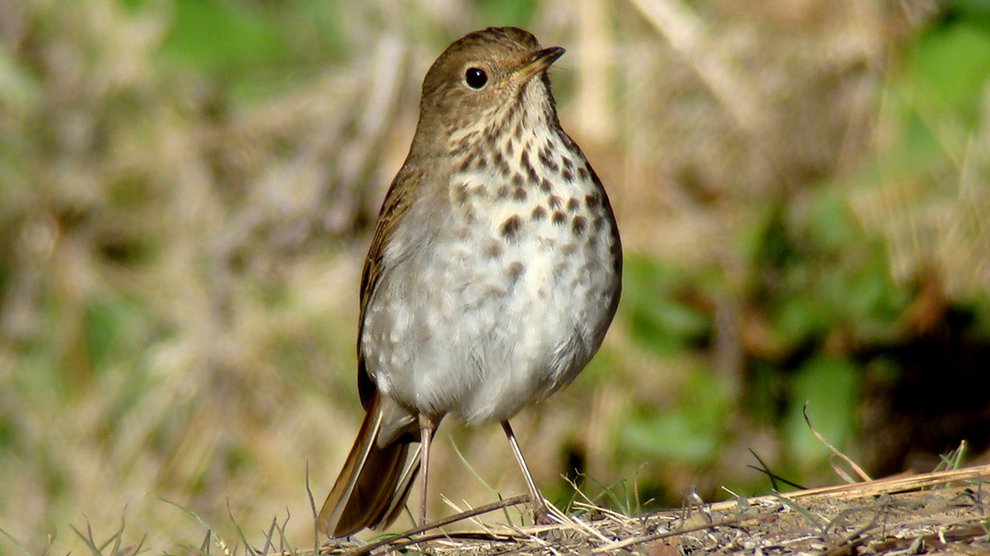Poets frequently liken birdsong to music, but in the case of the North American hermit thrush, the comparison isn’t just lyrical—it’s mathematically accurate. When the bird sings, it adheres to the same basic mathematical rules as human music.
Experts have long suspected that birdsong is innately mathematical, but they didn’t have the hard numbers to back it up. Leaving math out is a flawed approach, since our ears are sensitive to a different range of frequencies compared to birds’. Cultural conditioning, too, may cause us to hear musical scales where they don’t exist. To process all of the complexities in a bird’s song, you need to slow them down and subject them to a strict acoustic analysis.

Emily Doolittle, a composer at Cornish College of the Arts in Seattle, and her colleague Tecumseh Fitch, a biologist at the University of Vienna, did just that. They published a study in the Proceedings of the National Academy of Sciences documenting the pitches of 114 different song types from 14 male hermit thrushes. After isolating the frequencies corresponding to each note and calculating the mathematical relationships between the pitches, they were surprised to find that the notes in the birds’ songs fit into the harmonic series , a sequence of notes based on multiples of a baseline pitch. The harmonic series—or as it’s sometimes called, the overtone series—is a fundamental part of human music because it helps dictate what pitch combinations are aesthetically pleasing to the ear.
The mathematics of both the thrush’s song and human music may each be rooted in the harmonic series, but experts say that doesn’t mean human music and birdsong are the same. There are other factors to consider, like song structure, and variations between species. (Most other birds don’t sing in harmonic series. In fact, their “melodies” usually sound more random despite being rhythmically well-organized.) Nevertheless, this new study further complicates a long-standing debate about whether or not birdsong can be called music. Do birds make conscious, creative choices when singing?
Here’s Helen Thompson, writing for Smithsonian.com:
The songs don’t come from the physics of the hermit thrush’s vocal tract itself, because the tract isn’t flexible enough to simply produce all these series. So the bird has to be doing something to select the notes. For the hermit thrush, harmonic accuracy might be one way for females to evaluate male songs during mating seasons. Or harmonic series might simply be easier to remember, as they are for humans.
Doolittle is careful to point out that these birds aren’t structuring their songs based on scales. That would imply a degree of musical theory in birds that we have no way of proving—at least for now.
Regardless, the study shows that there’s at least one species out there attuned to the same musical principles as our own. The harmonic series is itself product of acoustic physics. And while certain scales (major and minor), for example, are more common in Western music, some evidence suggests that hermit thrush also sings pentatonic scales, which are more frequently used in non-Western music, suggesting that for birds, the beauty of music may be more mathematical than we suspect.


